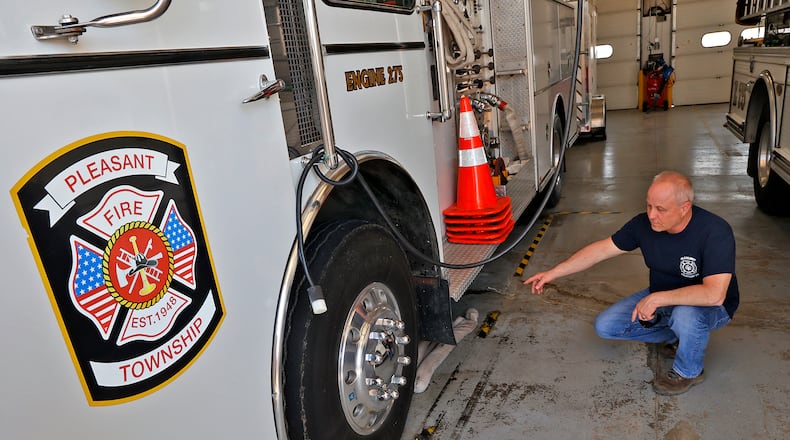“We apply for and receive several grants each year to offset some of these costs, but they only go so far,” Willis said. “We use our money wisely, and plan for future large purchases to minimize borrowing money. But with the increasing costs, there are more expenses and we have less and less available for the future.”
The levy expected to cost the owner of a $100,000 house $88 per year and would generate $239,000 annually, according to the Clark County Board of Elections.
If the levy passes, it will allow the fire department to continue to provide fire and EMS services, help with future plans in replacing the second fire engine that is 36-years-old, repair and/or replace the brush truck that is 24-years-old, and allow them to be competitive in bringing on and keeping personnel.
The department has 24 employees and two engines, with one being 36-years-old and the other about 20-years-old.
“The issue is it goes along with us not having a very big volunteer base anymore. We have people who want to volunteer, but we don’t have people with the time to go through all the training, so we have to hire from the outside, we have to have competitive wages with other surrounding departments, and that takes money from equipment and things like that,” Willis said.
With them being “good stewards” of the tax renewals and grant money they’ve received, Willis said it’s allowed them to not request an additional tax levy for the township since 2005. He said they have been trying to manage with the money they’ve been receiving through renewals of existing levies and grants.
If the levy fails, the township will consider putting it back on the ballot in the future.
“We are a future looking department and plan accordingly. That being said, we are aware that the daily operating increasing costs for the fire department are not going away... We will continue to prioritize equipment replacement and everyday expenses,” Willis said.
Early voting has started for the election on May 2.
About the Author

